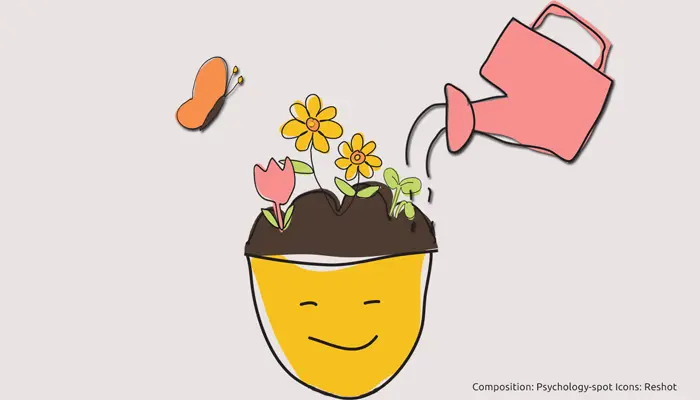
The new generations do not need more role models, but more self-determination. They don’t need a “supermarket” full of idols and influencers to choose from, but more freedom to be themselves. They don’t need more collectives to join, but more space to let authenticity flow.
The difference seems insignificant, but it’s not because when you look too much outside, you look too little inside. When you look for answers in others, thought is anesthetized. When models are imitated, the inner voice is ignored. When you belong to a tribe, individuality is murdered.
The label with which we identify also limits us
The identity construction process is complex and lasts a lifetime. Sometimes we go through confusing phases in which we question who we are and what we want or in which direction we will direct our lives.
On many occasions these phases are accompanied by emotions such as disorientation, uncertainty, fear, lack of meaning or even emptiness. Losing the compass that once guided us can plunge us into a sense of chaos.
Obviously, these sensations are not pleasant, so many people try to exorcise them as soon as possible. Driven by experiential avoidance, they seek quick fixes. But instead of looking inside for the answers, they look around.
Then they find a supermarket packed with different role models. There are groups and collectives a la carte. Celebrities, influencers and public figures in the image and likeness of their followers – or vice versa.
You just have to choose which group to belong to, which model to identify with, which slogan to shout or which symbol to tattoo on your skin. Hanging that label becomes a promise of security, belonging and identity.
However, the label that defines us also limits us.
Choosing a model – no matter how many there are and how varied they are – is never an act of personal freedom. We are not free when we choose between a series of predetermined options. Freedom isn’t choice but creation and, above all, self-determination.
Being free is not choosing a model to follow but creating day after day the person we want to become. To be free is not to choose between different political, religious or cultural referents but to build our own vision of the world idea by idea. Ultimately, freedom is not measured by the ability to choose but by the ability to think and be unique.
The modern supermarket of role models
The word determination comes from the Latin word termínus and refers to a border or limit. It implies circumscribing something or someone establishing certain barriers or borders. Everything that determines us, limits us. Even the options become a limit.
Self-determination implies a change in the rules of the game because it means that we are the ones who establish those limits, they are not externally imposed by culture, society or time, but rather derive from a conscious exercise of reflection. They are the result of intellectual and emotional maturity.
However, since the objective of every society is to survive by maintaining the status quo – a constant even in times of change – it pushes its members to choose between a series of pre-established models, instead of promoting their self-determination. Every society, every culture, and every age invariably have models that they actively promote to make them more appealing or seem more valuable.
It is not convenient for the society to promote self-determination because its model can only be perpetuated thanks to the formation of groups that can be labeled and manipulated. An example of this is that we are living in “a new morality that censors and categorizes” everything that does not fit its sensitivity, as Caroline Fourest wrote in her essay “Offended Generation”. With a certain nostalgia, the journalist herself wrote that “In May 1968, youth dreamed of a world in which it was ‘forbidden to prohibit’. Today, the new generation only thinks about censoring what hurts or offends them”.
The offenses and the role models have changed, but the censorship mechanism at the base remains the same because it is the one that guarantees a certain level of obedience and conformity. Through this mechanism, society encourages us to look outside for idols and models with which to identify ourselves, instead of carrying out an exercise of introspection to find our own voice. That creates a false sense of freedom.
The problem, however, is that these models – however broad or varied they may be – cannot contain a person’s wealth. In the long run, they end up being narrow moulds, so in order to fit into them we will have to make ourselves smaller, mutilate ourselves and deny our uniqueness.
Fitting into a mold is the sure recipe for frustration and life dissatisfaction because, no matter how much we identify with a model or a label, they will never be more than a pale reflection of what we could become.
For this reason, the new generations do not need more role models but an education that promotes self-determination. They don’t need to be told what to think, but encouraged to think. They need fewer answers and more questions. Less options and more creative capacity. And all this, without losing sight of the fact that the others also have the right to be, express themselves and choose their path in the world.



